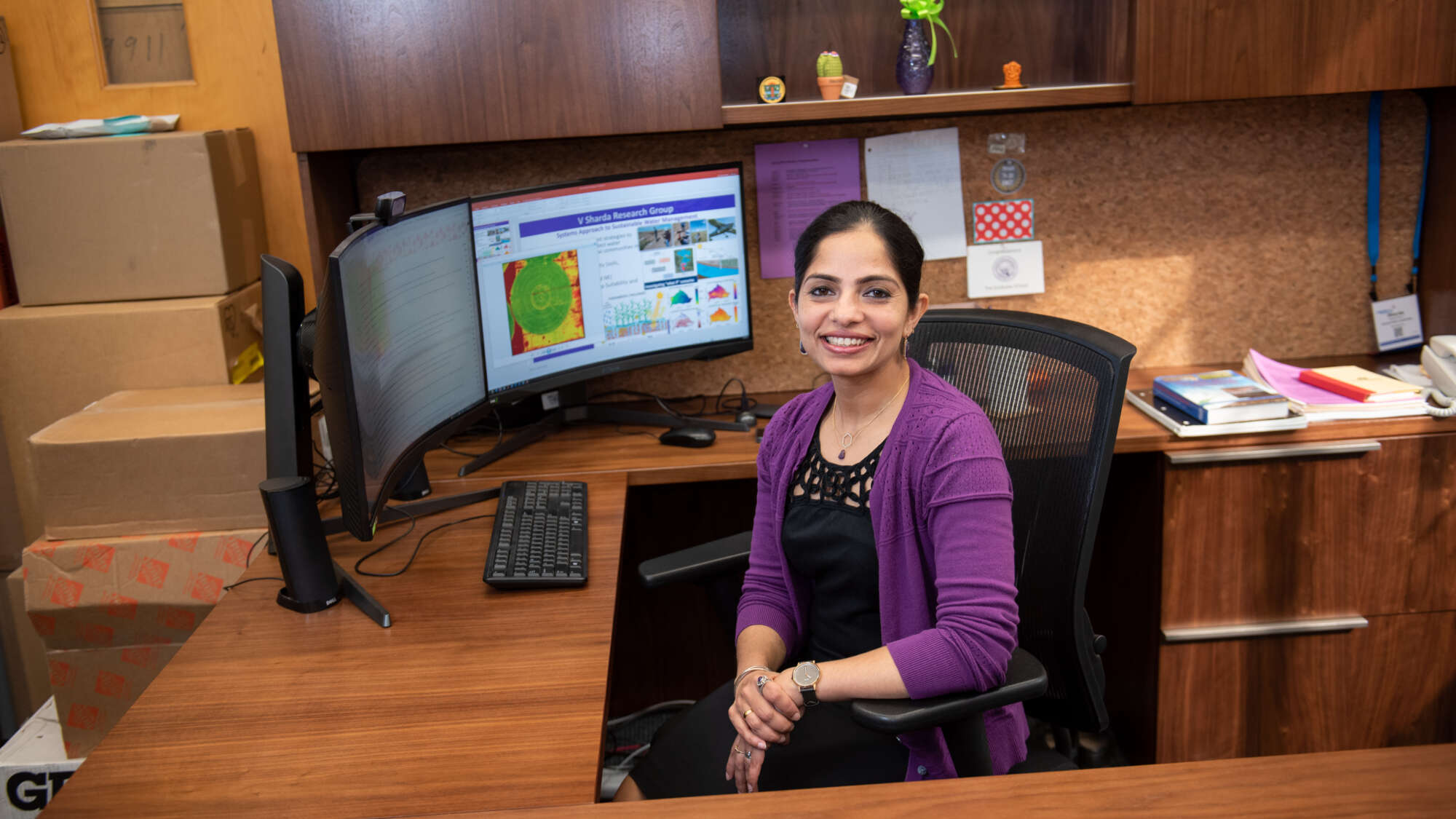A new natural crop spray shows promise for both farmers and the environment.
Farmers face many battles to produce a healthy and profitable crop — insects, diseases, proper amounts of water and nutrients — and the list goes on and on.
Scientists at K-State, along with their partners in the region, may have devised a product that will be a win-win for both farmers and the environment.
A natural tool to replace plastic
Today’s farmers cover their fields with plastic to help retain soil moisture and prevent weeds. But at the end of the growing cycle, they’re left with fields full of plastic waste.
But a biodegradable replacement is being developed. Dr. Vaishali Sharda, assistant professor of biological and agricultural engineering, along with a team of scientists from K-State, South Dakota School of Mines, and the University of Nebraska, received a $6 million grant from the National Science Foundation. The team is using the grant to develop and test a natural biopolymer spray for crop fields.
“The biopolymer that we’re creating will be sprayed on the field with robotic sprayers. Over the growth cycle of the crop, it will provide nutrients released at different stages of growth, it will help control weeds, and keep in soil moisture,” explained Sharda. “As the crop grows, the biopolymer will degrade, so by the time the crop is harvested, there won’t be any biopolymer in the field.”
Community-based solutions
The bigger picture aim of this project is to enhance rural economies. The team is producing two types of biopolymer — one is corn based and the other is derived from chicken feathers — using local resources.
“We try to source our proteins, both animal and plant-based, from local areas instead of importing from a different part of the U.S. or another country,” Sharda said. “The socioeconomic component of the new technology is important.”
Another big-picture aspect of this project is its focus on diversity and inclusion. Native Americans in South Dakota are involved in the project, as are many women. Ag industry leaders are also at the table to provide support.
A sustainable and profitable future
Sharda and the research team are still testing the biopolymer in fields and through computer models.
“My work specifically is testing how the biopolymer impacts our ag ecosystems — soil moisture protection, nutrient uptake and weed prevention,” Sharda said. “We also want to look at how the environment impacts the biopolymer once it’s in the field — climate impacts, rain, temperature. As the climate changes, extreme events will become more common.”
Sharda and the team are collecting data on all types of environmental factors and creating data sets for future climate change scenarios to run the product though a variety of models.
In the end, what’s most important is that the biopolymer product provides a solution for farmers to farm sustainably and make a profit.
“I think, from a farmer’s point of view, if we are able to deliver what our vision is, it’s a win-win situation,” Sharda said. “At the end of the day, farmers want to be able to do sustainable farming. They want to be able to farm for a profit and at the same time keep the farm going through generations.”
To support innovative work being done in the Department of Biological and Agricultural Engineering, click here.
